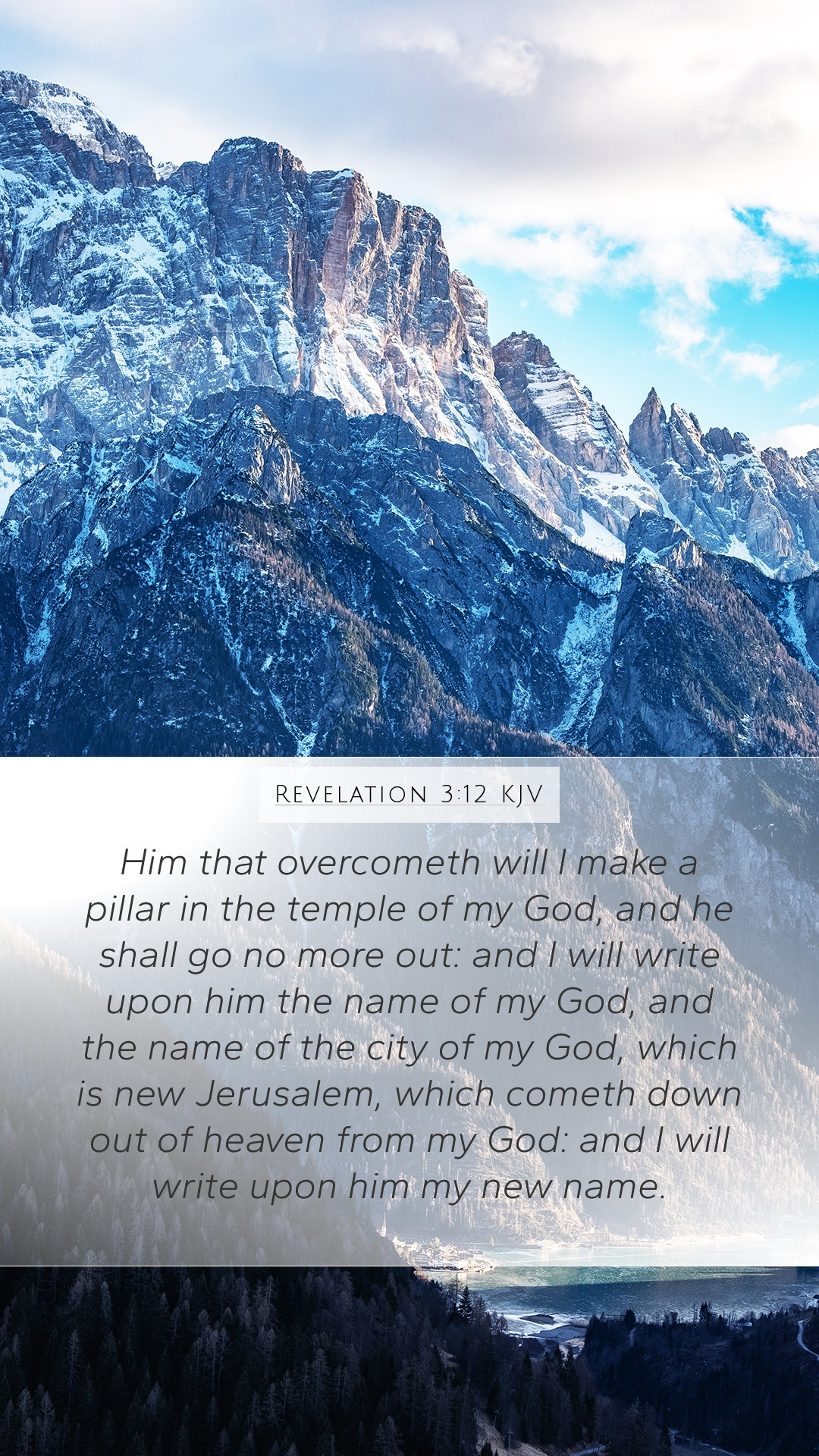Understanding Revelation 3:12
Revelation 3:12: "The one who conquers, I will make him a pillar in the temple of my God. Never shall he go out of it, and I will write on him the name of my God, and the name of the city of my God, the new Jerusalem, which comes down from my God out of heaven, and my own new name."
This profound verse offers a wealth of Bible verse meanings and rich Bible verse interpretations that reveal the promises made by Christ to His steadfast followers. The text is filled with layers of meaning that provide deep insights into Scripture analysis and Biblical exegesis.
Key Interpretations
- Promise of Stability: The metaphor of being a "pillar" in the temple signifies strength and permanence, indicating that those who endure in their faith will be honored and given a place of significance.
- Divine Presence: The phrase "in the temple of my God" suggests a close and eternal relationship with God, where believers are welcomed into His presence forever.
- Identity and Belonging: The writing of God's name indicates adoption and identity, highlighting that true believers are part of God's family and community.
- New Jerusalem: This is a reference to the ultimate fulfillment of God's promises, representing hope, renewal, and a future where God dwells permanently with His people.
- New Name: The mention of a "new name" reflects transformation and a new identity afforded to believers, linked to their relationship with Christ.
Commentary Insights
According to Matthew Henry, this verse underscores the rewards awaiting those who overcome worldly trials. He interprets the “pillar” as a symbol of support and strength, which aligns with how believers will hold a significant place in God's kingdom.
Albert Barnes comments on the significance of God’s name being written on believers. He asserts that this engraving signifies ownership and intimate connection, pointing towards the affirmation of their faith before God.
Adam Clarke elaborates on the concept of the "new Jerusalem," indicating that it symbolizes the culmination of God's redemptive plan and the ultimate destination for believers. He remarks that the term invokes hope and assures believers of their heavenly inheritance.
Personal Application
For Bible study groups, this verse serves as a means to examine personal faith, resilience, and identity in Christ. Discussion might focus on how individuals can remain steadfast amidst challenges and embrace their value and belonging in God's household.
In online Bible study formats, believers can explore how to apply these profound truths in their lives, particularly the implications of being recognized and honored by God for their faithfulness.
Cross References
- Philippians 3:20: "But our citizenship is in heaven, and from it we await a Savior, the Lord Jesus Christ."
- 1 Peter 2:5: "You yourselves like living stones are being built up as a spiritual house, to be a holy priesthood..."
- Revelation 21:2: "And I saw the holy city, new Jerusalem, coming down out of heaven from God..."
Conclusion
Revelation 3:12 encapsulates profound Bible study insights about the reward and recognition awaiting believers. It serves as an essential scriptural affirmation of identity and belonging in the heavenly realm. For those seeking a deeper Bible verse understanding, the insights drawn from esteemed commentaries reveal its rich theological depth and practical implications.
This verse is perfect for Bible study resources, Bible study lessons, or as part of Bible study discussions in various contexts, enabling believers to see their faith journey as a significant part of God's larger narrative.


